As children, with our lives ahead of us, we wonder ‘what if?’—what if that squirrel could talk, what if I had wings, what if Mommy and Daddy disappeared and I could live in my house all alone and eat dessert any time I wanted. As time passes and the past comes to trail behind we turn this sense of fantasy away from the present back to the past. ‘What if’ becomes ‘what if I had’—moved to Panama, quit smoking, walked away that night, told him I loved him. No child ever wished for a pony half so hard as your average adult wishes to have the chance to rectify an error, supplement a conversation, salvage some lost portion of our lives.
It is no wonder, then, that genre fiction has always been interested in memory—which, after all, has a far closer kinship with fantasy than fact. The Seventh Perfection is a book about a woman with perfect recollection seeking to untangle truth from the twisted strands of history (both personal and societal), and the consequences which spring from this single minded obsession.
Here are five other books likewise fascinated (tormented?) by memory.
Ficciones by Jorge Louis Borges
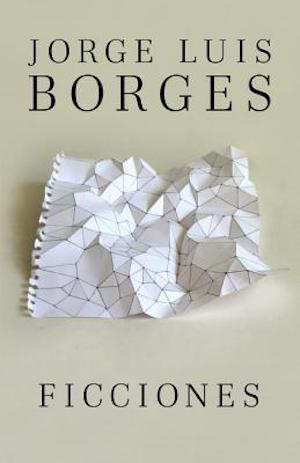
Any discussion of memory in fantasy needs to start with the Argentinian grandmaster, whose wondrous short stories are widely regarded as among the best written in the 20th century. Ficciones is Borges at the peak of his ability, contemplating the slate of themes to which he would return throughout his life–labyrinths and lost gods, untrue histories, the divergence of recollection, the impossibility of truth. In “Funes the Memorious”, he imagines an illiterate gaucho blessed/cursed with powers of remembrance so extraordinary as to detect and preserve the most minute details of his life–the profile of a dog at 12:13 in the afternoon, the exact placement of every star in the midnight sky. In “Tlon, Uqbar, Orbis Tertius” he chronicles the creation of an imaginary world of enormous peculiarity which begins to enter into and overtake existence. For Borges—for all of us—memory is a force as present and powerful as reality, and often more so.
Empress of Salt and Fortune by Nghi Vo
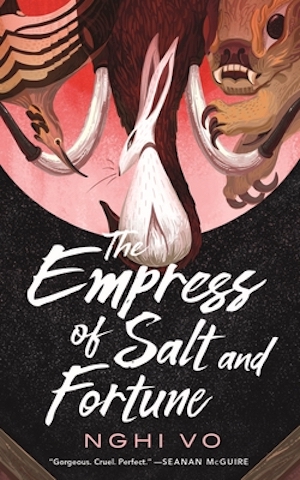
A series of objects chronicle an uprising against an unjust regime in this charming, swiftly-paced novella. In the mysterious, evocative recollections of an old washer woman the reader experiences the overthrow of an empire, along with a more intimate depiction of her youth spent in the court of a fallen monarch. As our narrator interweaves her personal experiences as a revolutionary with the sanitized popular accounts of the new regime, we see how memory becomes history, and history becomes myth. Vo has a knack for the small touches which give fantasy its color—her names are fabulous, and throw away references to mammoth-born armies and weather mages are a delight—and the story moves along at a brisk and thrilling pace.
Tigana by Guy Gavriel Kay
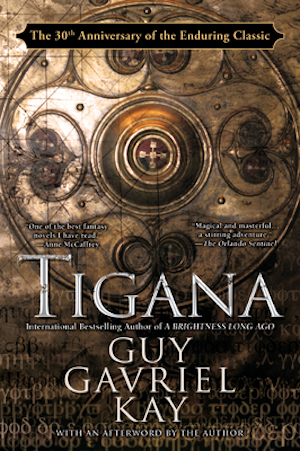
In a fantastical version of Medieval Italy, the survivors of a ruined city-state seek the true name of their lost nation to overthrow the (surprisingly sympathetic) dark lord who stole it. Here we see how history—that is, memory on a large scale—can be warped and altered to the benefit of the powerful, with a foreign tyrant not only conquering the eponymous nation but magically eliminating its history from existence. Without a name, without memory to serve as a cohesive identity, the exiled citizens of Tigana become lost and rootless. But Kay is interested in memory on a much finer grain as well, with our cast of anti-heroes (and outright villains) shackled to the events of their lives, struggling to move beyond their tragedies and lost loves.
The Heavens by Sandra Newman
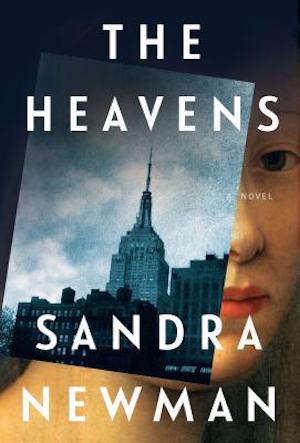
In a halcyon, near magical New York a young woman’s capacity to re-enact history through a dream time existence threatens to corrupt reality. Each morning she wakes to an existence which is a corrupt version of the day before—her friends and family decayed and altered, the world itself coming closer to ruin—in short, a dramatized vision of the entropic reality in which we occupy. The Heavens is a book about the way it felt to be young and vital and beautiful (or at least the way we remember it feeling), and the dangers of committing to a past which never quite existed and which, in any event, can never be recovered. Tragic and luminous, read it but expect to feel sad after.
The Fifth Head of Cerberus by Gene Wolfe
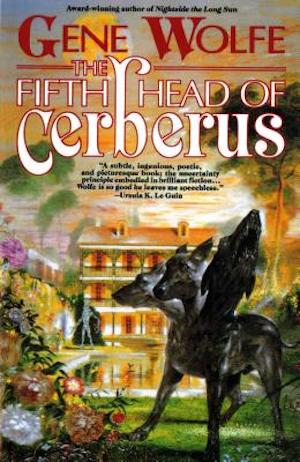
No list of this sort could be complete without a mention of Gene Wolfe. But which Gene Wolfe? Peace would certainly deserve a shout out, but I already wrote about that. Book of the New Sun is about memory (and its distortion) most assuredly as it is about magic swords, monsters and magic. But I’ll settle with this novella which is (probably) Wolfe’s finest work, in which a suite of stories detail the colonization of a distant planet in some far future period of humanity’s evolution. In the eponymous short, a demented biotechnologist recollects the twisted attempts of his patriarch to realize a perverse form of immortality, even as his carefully crafted memories omit essential portions of his story. In VRT, an imprisoned anthropologist contemplates an expedition to discover the remnants of an alien species, with the reader forced to untangle which strands of memory have been changed or corrupted. Wolfe’s genius is such that to offer much detail is to render a (potentially false) judgment, but his esoteric examinations of the nebulous boundaries of memory and identity, and of our (inevitably failing) efforts to surmount those limitations, makes for a brilliant if oblique work. Read it, scratch your head confusedly, then read it again.
Buy the Book
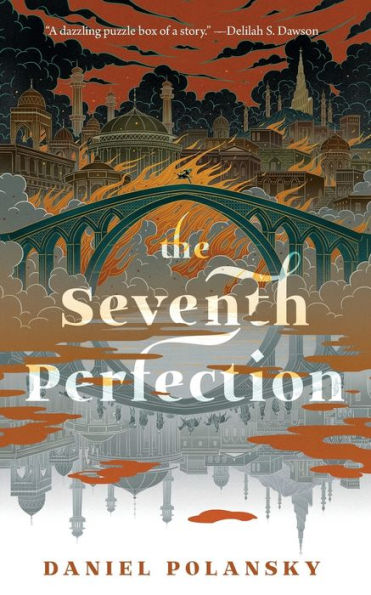

The Seventh Perfection
Daniel Polansky’s first book, Low Town, was released in 2011, winning the Prix Imaginales. Two sequels followed, Tomorrow, The Killing (2012) and She Who Waits (2013). His follow up series, The Empty Throne, began with Those Above (2015) and concluded with Those Below (2016). A City Dreaming was released in 2016. His novella, The Builders, was nominated for the 2016 Hugo award. His latest novella, The Seventh Perfection (2020), was featured on Kirkus’s best of 2020 list. He lives in Los Angeles.










